Photos and 360° virtual reality videos curated by Lighthouse Relief volunteers show what it’s like to be part of our day and night spotting operations.
Every evening, Lighthouse Relief volunteers hike up the cliffs of Korakas to scan the northern shore of Lesvos for incoming boats. On their way, they pass the old lighthouse that inspired our name in October 2015 — when we first established night spotting operations to respond to the unprecedented rate of arrivals on this remote shoreline. Today, old footprints in the dirt path to the top of Korakas are the strongest reminder of those that dedicated countless hours during that difficult time to ensure the safety of arrivals — a legacy that new volunteers continue to cherish and uphold.
Perched at the highest point is a wooden shed etched with signatures, messages of hope and memories from past volunteers. Among these notes is a copy of a poem by Nayyirah Wahid that reminded one volunteer of his time with us:
i am your friend
a soul for your soul.
a place for your life.
home.
know this.
sun or water.
here
or
away.
we are a lighthouse.
we leave.
and
we stay.
— Nayyirah Wahid
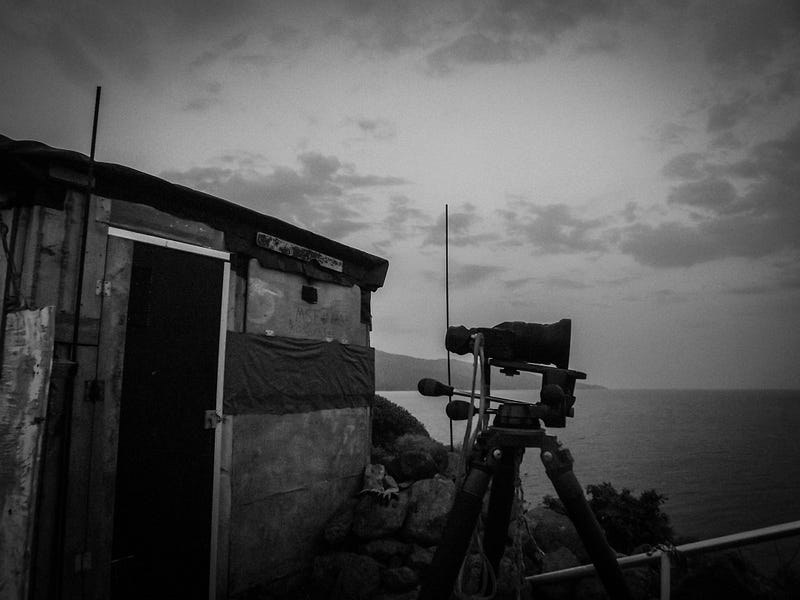
The spotting shed perched at the top of Korakas (Photo by Paolo Goglia)
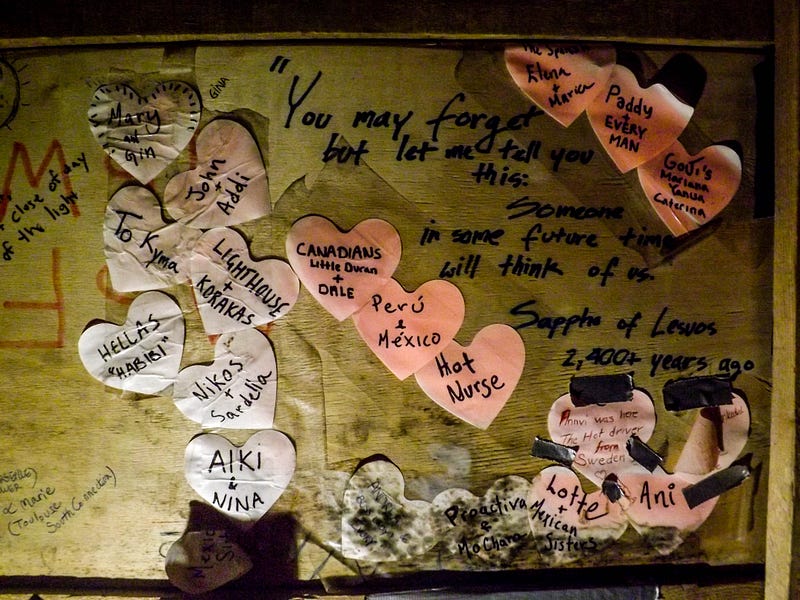
Messages and quotes written on the wall in the Korakas spotting shed. (Photo by Paolo Goglia)
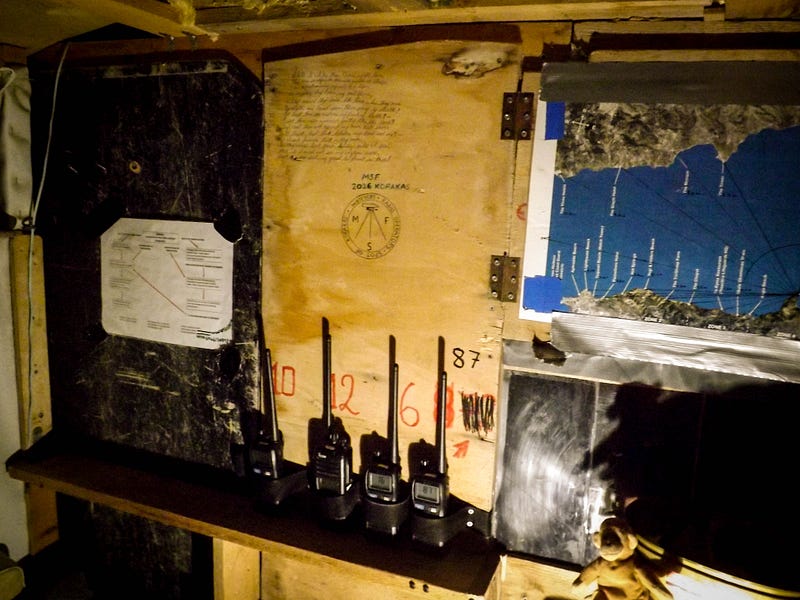
The first thing volunteers do upon entering the shed is set up their radios and equipment, pictured here. (Photo by Paolo Goglia)
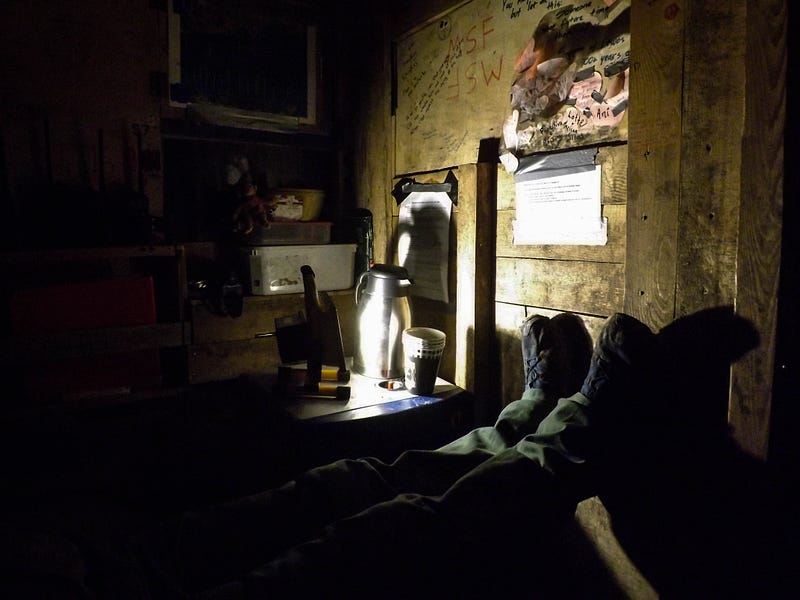
A spotter rests his legs while his partners scan the sea outside. (Photo by Paolo Goglia)
As the spotting night shifts begin, volunteers — typically grouped in teams of two or three — take turns scanning the waters for incoming dinghies. The view from Korakas is magnificent, showing much of the northern shoreline and with the Turkish coast in a blur at a distance. On a clear night, the scattering of stars above lend the only light to guide boats to safety. When there’s a storm or the moon is hidden by clouds, journeys can be particularly treacherous.
That’s why spotters vow to stay alert and fully attentive to the task at hand. They’re listening, too, for the sound of a rough muffle in the distance — an early indicator that a dinghy is floating in the waters. As hours pass, volunteers swap stories of life before Lesvos and what brought them here — but with their eyes and ears still glued to the sea.
Since September 2015, our Korakas night watch operations have proven to save thousands of lives. These volunteers have been among the first to notice many boats at sea, and have acted quickly to notify the relevant rescue and landing teams to respond. If it becomes apparent that a boat is likely to land at the rocky cliffs near Korakas, the spotting crew allocates a few members of its team to go down and guide arrivals to safety — with one person still dedicated to scan the sea in the meanwhile.
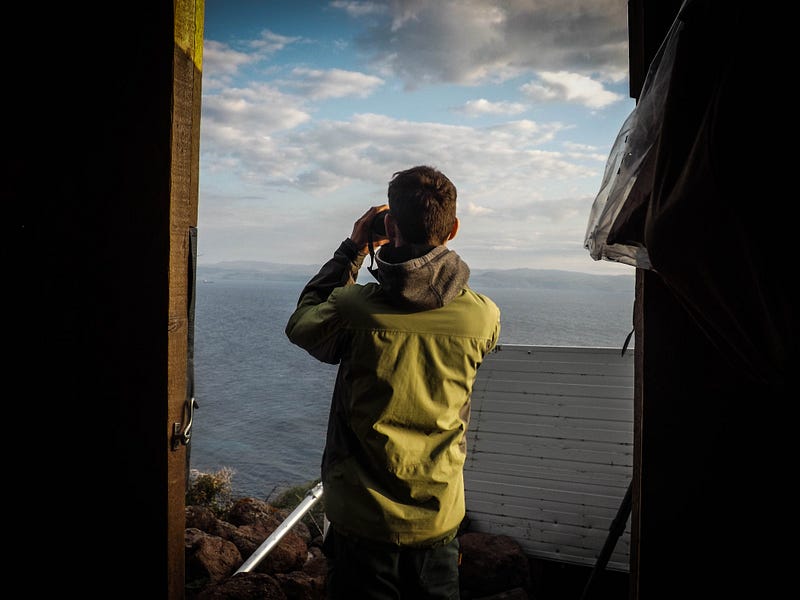
Volunteers scan for boats. (Photo by Paolo Goglia)
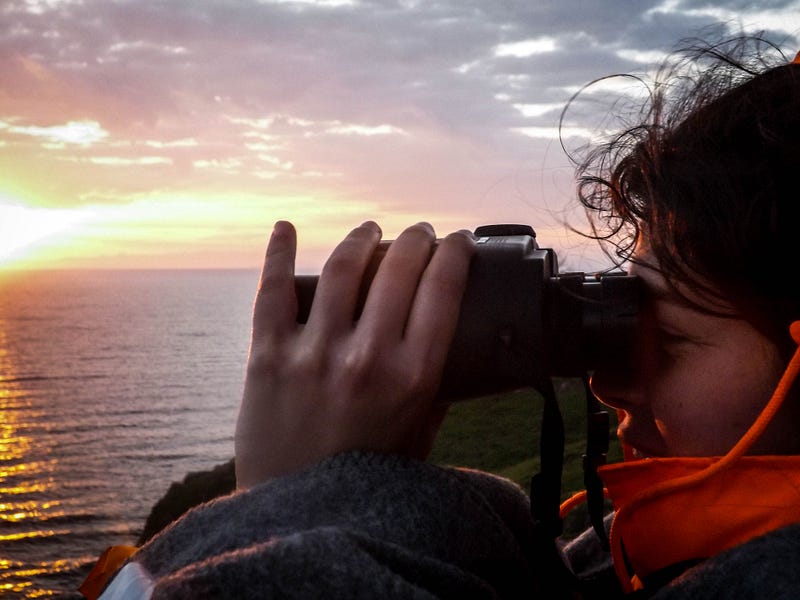
Photo by Paolo Goglia
When the sun rises, the night team drives back to Skala to hand over their equipment to the group of volunteers that would set out to another strategic vantage point on the northern shore, called Lepetimos, to continue spotting. Here, Lighthouse Relief volunteers work hand-in-hand with partners from other organisations to manage all daytime spotting activities.
Paired together, Lighthouse Relief’s day and night spotters ensure consistent, twenty-one hour coverage of this essential service, 365 days a year, and in all weather conditions. In a situation so vulnerable to uncertainty and fragility, the importance of this constant and reliable presence can’t be underscored enough.
You can help us sustain our current spotting operations in Lesvos by donating to our latest Global Giving campaign here. More than ever, Lighthouse Relief requires immediate updates our spotting equipment — particularly our night vision binoculars — which are essential for volunteers to carry out their responsibilities as effectively as possible. Contributions to this campaign will help us ensure our spotters have the resources they need to save lives.
